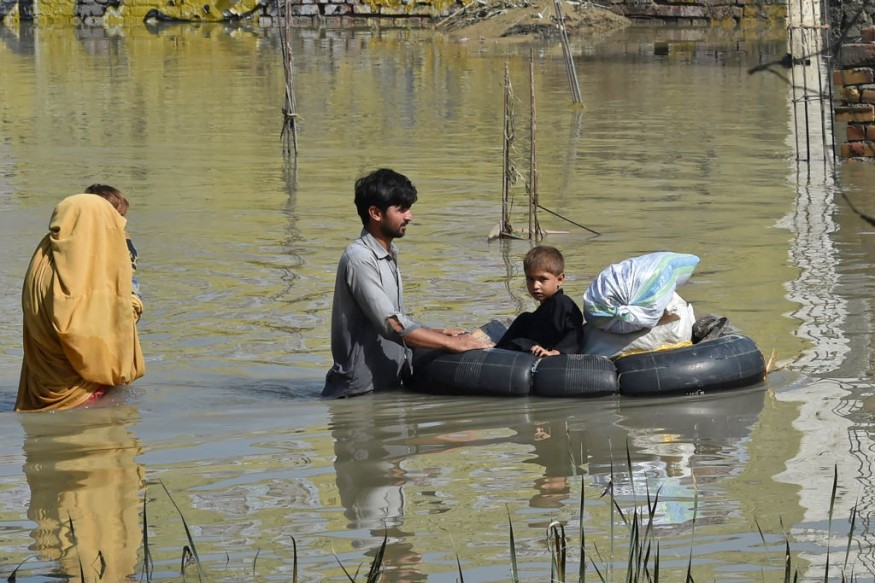One-third of Pakistan is underwater as a result of the severe rains. The floods are impacting thirty-three million people. Seven hundred thousand animals have drowned, and villages and infrastructure have been destroyed.
Henny de Vries, the incoming Dutch ambassador in Islamabad, describes one of the worst calamities to ever strike Pakistan as "These tragic realities of what we know so far."

A food shortage will affect 5.7 million flood survivors in Pakistan over the next three months, the United Nations' humanitarian organization has warned.
Also Read : Pakistan Flood Victims Continues to Suffer as Situation Worsens Leading to Food Shortage
What is the situation in Pakistan right now?
Although the specifics are yet unknown, the upsetting photos and numbers that have so far surfaced are indeed worrying. We still don't fully understand what has occurred since almost 90% of the affected regions are still inaccessible.
However, the truth remains that Pakistan has seen unparalleled levels of natural disasters. Uncontrollable amounts of water have been created in the valleys below by the intense monsoon rains mixed with glaciers melting in the Himalayas.
Serious Disaster

As the death toll from the floods increased on Monday, the United Nations humanitarian organization warned that about 5.7 million Pakistani flood survivors would experience a severe food crisis in the coming three months.
According to Pakistan's National Disaster Management Authority, floods brought on by unusually intense monsoon rains have resulted in 33 million people being affected, 1,695 fatalities, more than 2 million homes being damaged, and the displacement of hundreds of thousands who are now living in tents or makeshift housing.
In its most recent report released on Saturday, the U.N. Office for the Coordination of Humanitarian Affairs stated that the current floods are predicted to worsen Pakistan's food insecurity and that 5.7 million people in flood-affected areas will experience a food crisis between September and November.
According to the World Health Organization, 16% of the population had experienced moderate to severe food insecurity before the floods.
Government Sentiment
The Pakistani government argues that there is no immediate cause for concern over food supply since there is enough wheat in storage to last through the next harvest, and more are being imported.
The U.N. agency and other partners have increased their flood response and provided help to 1.6 million people directly affected by the downpours. Other partners said in a tweet on Monday.
OCHA reported increased outbreaks of waterborne and other illnesses in Sindh and southwest Baluchistan, where floods have wreaked the most havoc since mid-June.
Organizations have dispatched several nations and the U.N. Over 131 aircraft bearing aid for survivors; however, many claims they have either gotten too little relief or are still waiting for it.
The U.N. As temperatures drop in preparation for winter, a humanitarian organization also noted in its report on Saturday that rainfall in Sindh and Baluchistan has significantly decreased over the previous week. The OCHA study also brought attention to the suffering of flood victims, noting that many still reside in "unsanitary conditions in temporary shelters, frequently with restricted access to essential amenities, aggravating the danger of a catastrophic public health disaster."
Relief Operation
The U.N. stated last week that "food is being delivered to vulnerable families; however, it is still not enough to meet the people's nutritional needs." The U.N. is set to release a revised appeal this week asking for an additional $800 million from the international community to address the escalating life-saving needs of Pakistani flood survivors."
Related Article : Exposure to Major Disasters Can Cause Long-Term Mental Health Problems
For more climate and weather updates, don't forget to follow Nature World News!
© 2026 NatureWorldNews.com All rights reserved. Do not reproduce without permission.





